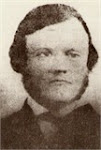Found this on the Michigan DNR web site: DNR - Fish Kills
Winterkill is the most common type of fish kill. When severe, it has devastating effects on fish populations and fishing quality. Winterkill occurs during especially long, harsh winters....Shallow lakes with excess amounts of aquatic vegetation and mucky bottoms are prone to this problem....Winterkill begins with distressed fish gasping for air at holes in the ice and ends with large numbers of dead fish which bloat as the water warms in early spring. Dead fish may appear fuzzy because of secondary infection by fungus, but the fungus was not the cause of death.
Actually, the fish suffocated from lack of dissolved oxygen. Trace amounts of dissolved oxygen (measured in parts per million, ppm) are required by fish and all other forms of aquatic life....Fortunately, usually enough fish survive, either in the lake or in connecting waters, to repopulate the lake in a couple of years. Only for extreme die-offs is fish restocking necessary.
The dissolved oxygen content of water depends primarily on three variables. These are the amount of mixing with the air above the lake, the rate of oxygen production by plants, and the rate of oxygen consumption (respiration) by living aquatic organisms....
A short-term solution to impending winterkill, suitable for ponds and small
lakes, is to aerate with commercial devices or outboard motors....
The only long-term solution for winterkill lakes is to reverse the natural
process of filling and enrichment (eutrophication)....
















No comments:
Post a Comment